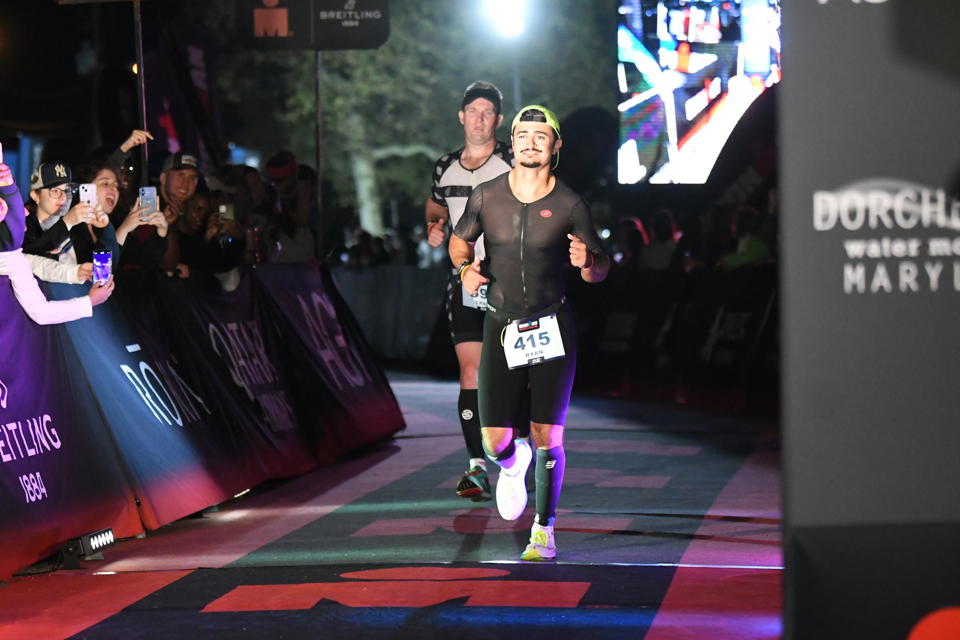From Medical Student to Ironman
Ryan Mohebpour Proves that Growth Happens on the Toughest Paths—Both in Medicine and Athletics

After years of testing his limit with endurance-based challenges, Ryan Mohebpour, SOM Class of 2028, had his sights set on completing his first Ironman challenge. He kept waiting for the “perfect time” to finish the triathlon of a 2.4-mile swim, 112-mile bike ride, and 26.2-mile run.
“Eventually, I realized that the perfect moment would never magically appear, I had to create it,” he said.
Mohebpour took on the Ironman challenge in Maryland in September, which he says represented the ultimate test of resilience and endurance, themes that have guided him for years. After running recreationally, he completed his first two tests of endurance at the NYC Marathon in 2023 and 2024. Previously participating in Brazilian Jiu-Jitsu, Muay Thai, kickboxing, and lacrosse, and now, running and weightlifting, triathlon training was different territory he had to navigate, all while entering his second year in medical school.
“I approached [training] with a kind of ‘all-in’ mentality,” he said. After signing up for the race, Mohebpour spent hours researching training methods, understanding the demands of each discipline, figuring out the equipment and resources he needed. He built a structured training plan around his academic schedule, but it wasn’t without many sacrifices, including long workouts after lectures, early morning training sessions, and less free time with friends and family. “In hindsight, every difficult moment played a meaningful role in my growth,” he said. “Balancing both worlds taught me how capable I am when I fully commit to something.
Mohebpour doesn’t shy away from physical challenges—even while tackling the demanding journey of medical school. He says he always leaned toward choosing the harder path because that’s where the most growth happens. Medical school and training for strenuous races both demand discipline, resilience, and an ability to stay steady in the face of adversity.
Being a medical student and an athlete has been complementary in his life. Understanding physiology has been an advantage with him learning how the body responds to training, nutrition, stress, and recovery, making him a better athlete and future physician. “Having a medical background gives me a deeper appreciation of what’s happening behind the scenes and allows me to train more effectively and safely,” he said.
While Mohebpour trained for months, race day brought its own set of challenges. But he had already made himself a promise: he wouldn’t leave the course unless it was through the finish line or on a stretcher. Although he felt his body start to give out halfway through the race, he crossed the finish line at just over 13 hours, which he described was “surreal.”
“In that moment, all the months of training, early mornings, long workouts, and the struggle of balancing it all with medical school condensed into a single realization: I had done it,” he said. “Everything that I had endured, not just during training, but throughout my life, seemed to culminate right there. When I crossed the line, I immediately went to my brother, and the emotions hit me so strongly that I broke down in tears on his shoulder.”
Maryland was only the beginning. Mohebpour is already training for his next challenge— Ironman Jacksonville in May—his second of many to come, this time with far more knowledge, experience, and confidence.
“Everything begins with the belief that you can do it, even before you know how,” said Mohebpour.

